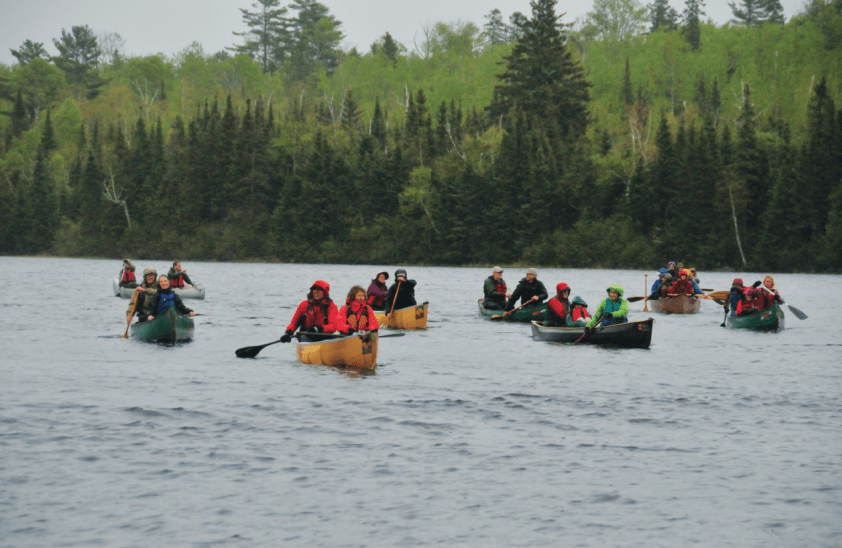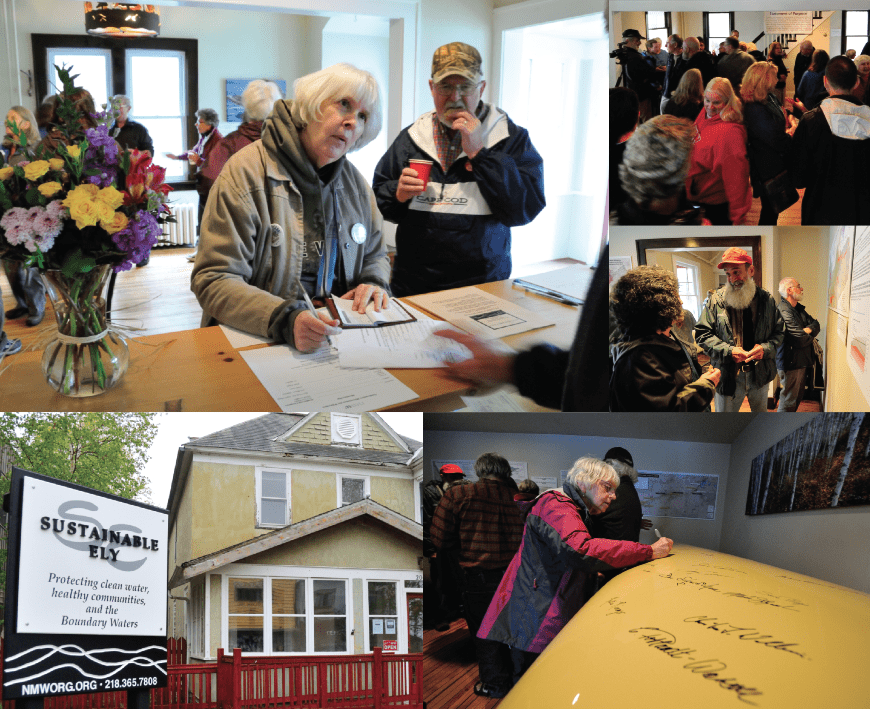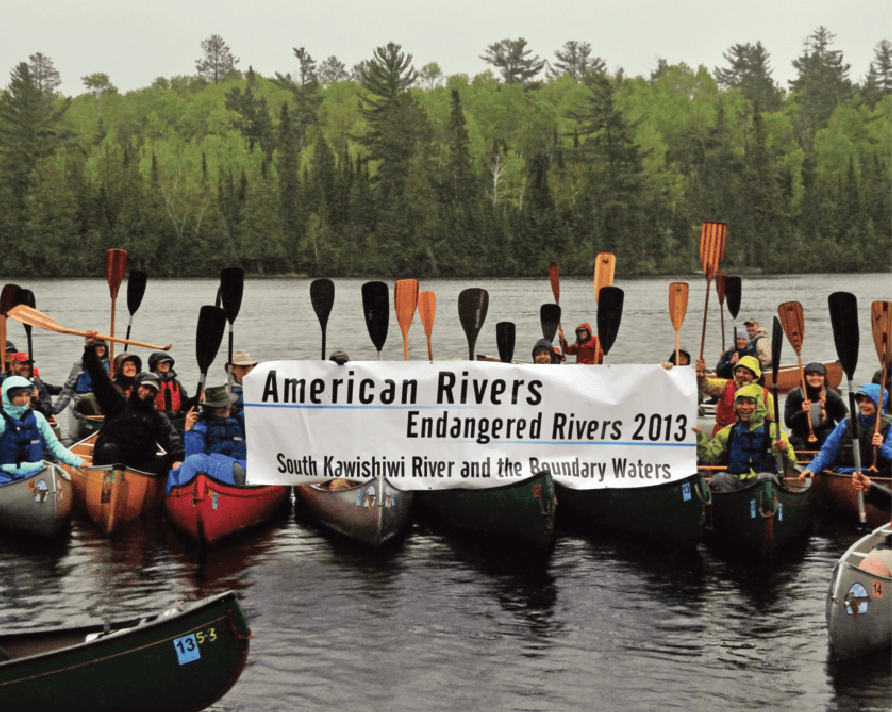Envisioning a mining-free future for the Boundary Waters
By Alissa Johnson
On the first day of June, thirty canoes and some sixty paddlers made their way down the Kawishiwi River. The paddlers wore down jackets and raincoats under their life jackets, and they paddled into a cold and rainy headwind. They took to the river in spite of the weather because they paddled for a purpose: to draw attention to the Boundary Waters Canoe Area Wilderness (BWCAW), which together with the South Kawishiwi River, has been named one of the most endangered watersheds of 2013 by the nonprofit American Rivers, and to launch a new initiative called Sustainable Ely.

Both American Rivers and the people behind Sustainable Ely are concerned with one thing: mining proposed on the edge of the Boundary Waters. Sustainable Ely is an environmental action center that has opened up shop on Sheridan Street, the main drag in Ely, Minnesota. It’s the brainchild of Steve Piragis, owner of Piragis Northwoods Company, and run by Northeastern Minnesotans for Wilderness. Their goal is to attract summer tourists. While there’s an inviting sign in the front yard and a placard that reads “open” in the window, tourists won’t find anything for sale inside. Instead, they’ll find information on mining and computers at the ready so they can urge Congress and the President to protect the wilderness from mining altogether.
“The main point is to ask them to take action while they’re in the center,” said Piragis. He and his wife Nancy purchased the home that houses Sustainable Ely and lease it to Northeastern Minnesotans for Wilderness. “Several thousand people walk the streets of Ely everyday. We thought that if we had a place where we were visible, advertised with signage, and got people in, we could talk to them about the issue of mining on the edge of the Boundary Waters, which concerns us so much.”

“We’re local people acting locally and trying to have an influence nationally,” he added, explaining that the group’s ultimate hope is to secure permanent protection for the BWCAW watershed while President Obama is still in office and the political tides are in Sustainable Ely’s favor. He hopes that tourists will help create a buzz in Washington, and that by the end of the summer the Center will have collected 25,000 signatures on a donated canoe that he and other Sustainable Ely organizers dream of portaging up the capitol steps in Washington D.C.
Still, Piragis and his partners have no illusions that Sustainable Ely will be a short term operation or that securing permanent protection will be easy. They intend to stay involved in the mining debate for the long haul. “If we’re unsuccessful, at the very least we’re going to show the mining companies that we’re a watchdog here in town,” Piragis said.
It’s a bold role for an Ely business owner to take on, particularly given the town’s history of unrest when it comes to wilderness management. Past debates have led to environmental writer and activist Sigurd Olsen being hung in effigy and blockades in front of BWCAW entry points. But Piragis believes that it’s a natural stance for someone like him to take.
“The Boundary Waters are unique in the world. We sit in a business that depends on clean water and a clean environment, so I don’t think it’s unnatural for anybody in our business to be concerned and willing to step out,” he said. “Nobody comes here to drive through an industrial zone. They come here because it’s the end of the road, the beginning of the wilderness and it should have a wilderness character.”
So far, Piragis has been blown away by the outpouring of positivity and volunteers dedicated to raising awareness about mining. After the June outing on the Kawishiwi River, more than 100 people gathered at the Sustainable Ely Center that night for its grand opening. There were the typical grand opening events—mingling, food, and drink—but there were also speeches by notable individuals, including an American Rivers representative and former WCCO anchor Don Shelby. The cause is definitely garnering attention.
“I was almost tearful when we were standing in the Outward Bound dining room before the paddle on the Kawishiwi River, talking about why we were there. It was deeply moving,” Piragis said. “There’s something innate about [the cause] that people are responding to in an amazing way.”
In addition to spurring political action, Sustainable Ely is also hosting community forums at Vermillion Community College. Speakers include Nancy Schuldt, Water Projects Coordinator for the Fond du Lac Environmental Program, Dave Chamber of the Center for Science in Public Participation, and Dr. Tom Power, a University of Montana professor.
Visit Facebook/SustainableEly for more information.

because of mining proposed in the area. Visit www.americanrivers.org for more information.
This article appeared in the Summer 2013 edition of Wilderness News

